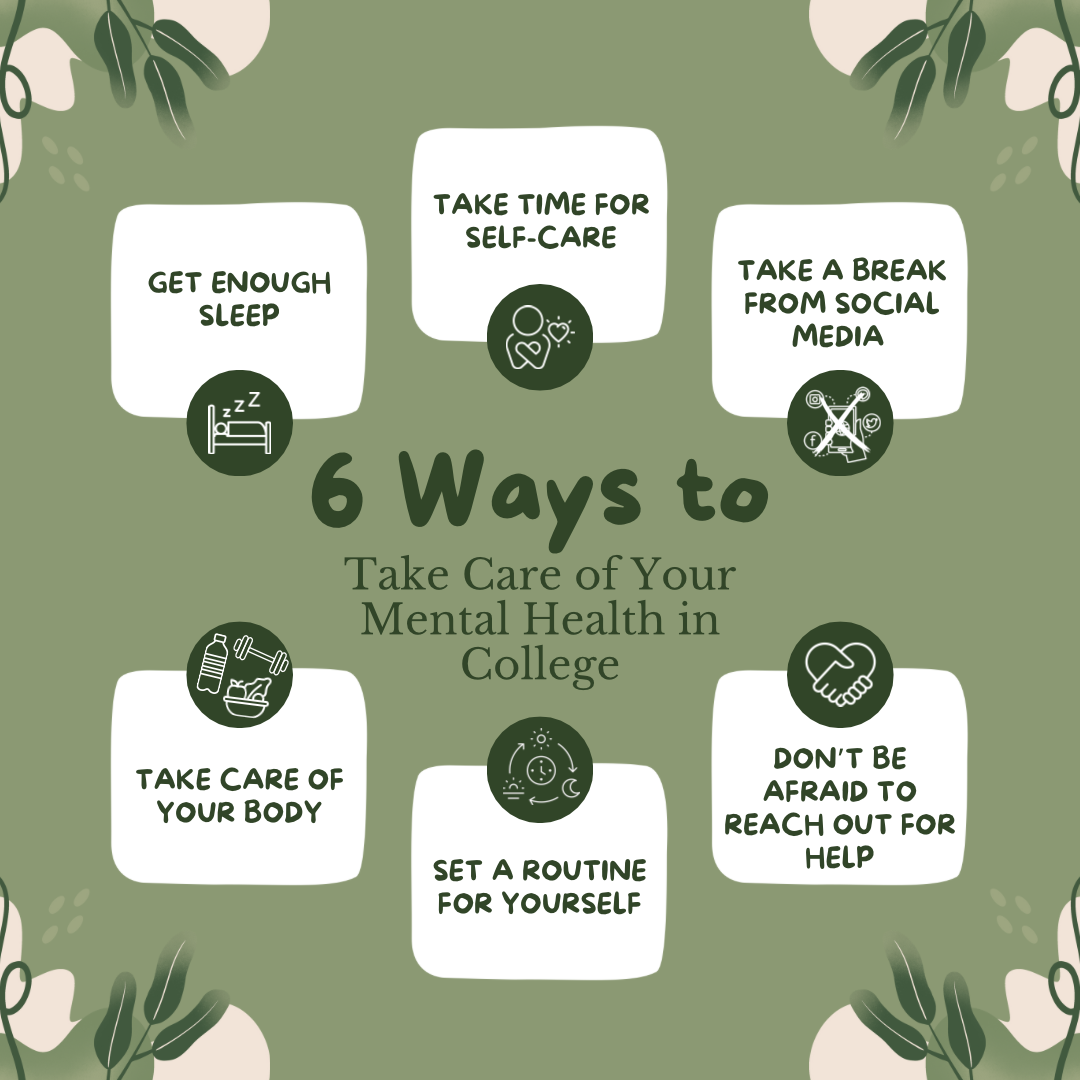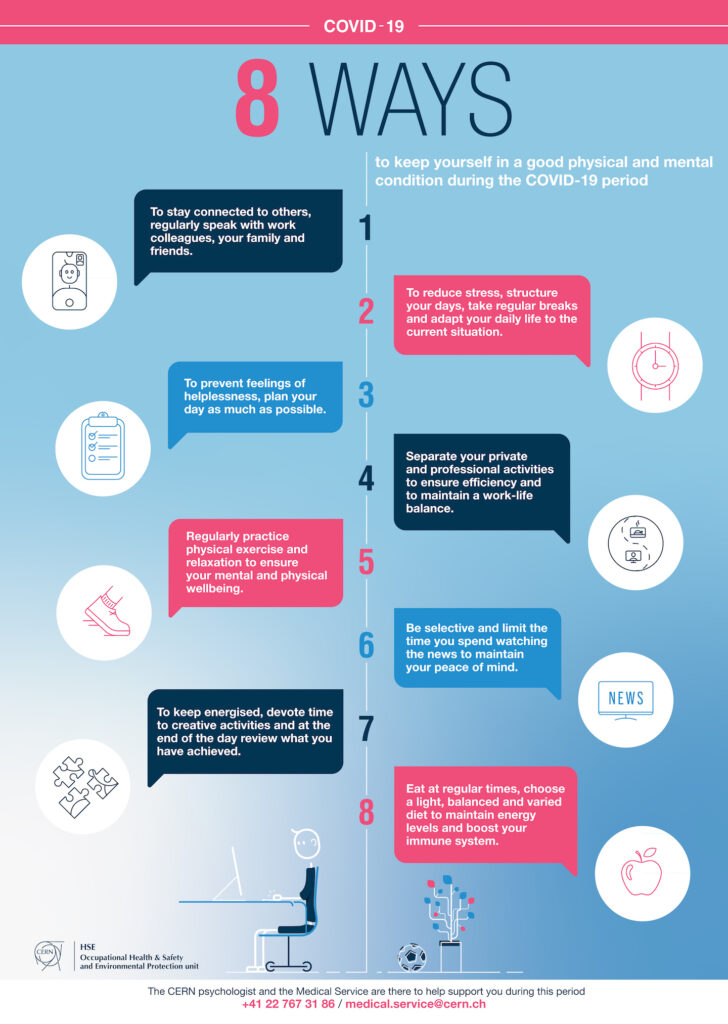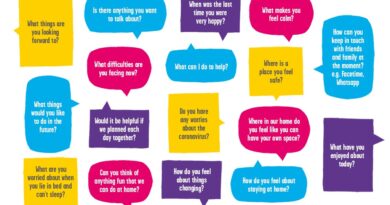Take Care Your Mental Health: Essential Tips for Daily Wellness
Mental health is essential for overall well-being. It affects how we think, feel, and act.
Taking care of your mental health is as important as caring for your physical health. Our mental state influences our daily lives and relationships. In today’s fast-paced world, stress and anxiety are common. Ignoring mental health can lead to serious problems.
Regular self-care can help maintain a healthy mind. Simple steps can make a big difference. Practicing mindfulness, staying active, and seeking support are crucial. A balanced life promotes mental wellness. Let’s explore how to nurture our mental health effectively. This blog will guide you on simple yet powerful ways to take care of your mind.

Importance Of Mental Health
Mental health is vital for overall well-being. Taking care of your mental health leads to a happier, healthier life. It affects how you think, feel, and act. It also influences how you handle stress, relate to others, and make choices. Understanding its importance can help you lead a balanced and fulfilling life.
Why It Matters
Mental health is crucial for several reasons. It affects your emotional, psychological, and social well-being. Good mental health allows you to:
- Enjoy life and have a sense of purpose
- Cope with stress and bounce back from adversity
- Build and maintain healthy relationships
- Work productively and make meaningful contributions
When mental health is neglected, it can lead to serious issues like depression, anxiety, and other mental disorders. These issues can impact every aspect of your life, including physical health. Research shows that mental health issues can increase the risk of chronic diseases such as heart disease, diabetes, and cancer. Furthermore, mental health affects your ability to think clearly, make decisions, and solve problems. Good mental health enhances your ability to learn new skills and adapt to change. It is essential for personal and professional growth. Therefore, prioritizing mental health is not just about avoiding illness; it’s about thriving in all areas of life.
Impact On Daily Life
The state of your mental health can significantly impact your daily life. It influences how you feel about yourself and your interactions with others. Here are some ways mental health affects daily activities:
- Work Performance: Poor mental health can reduce productivity and increase absenteeism. It can also affect your ability to concentrate and make decisions.
- Relationships: Mental health issues can strain relationships with family, friends, and colleagues. It may lead to misunderstandings and conflicts.
- Physical Health: Mental health affects sleep patterns, energy levels, and eating habits. It can lead to physical symptoms like headaches and stomach issues.
- Self-Care: Poor mental health can make it hard to take care of yourself. You may neglect personal hygiene, nutrition, and exercise.
Good mental health helps you manage your emotions and behavior. It enables you to handle stress and cope with life’s challenges. It also fosters a positive outlook, which can enhance your overall quality of life. Taking steps to improve mental health can lead to better physical health, stronger relationships, and greater life satisfaction.
Common Mental Health Issues
Taking care of your mental health is crucial for your overall well-being. Common mental health issues can affect anyone, regardless of age, gender, or background. Understanding these issues can help you recognize symptoms and seek the right support. Let’s explore some common mental health issues, focusing on anxiety disorders and depression symptoms.
Anxiety Disorders
Anxiety disorders are one of the most common mental health issues. They can cause intense, excessive, and prolonged worry and fear about everyday situations. Symptoms can interfere with daily activities and relationships. There are several types of anxiety disorders, each with its own characteristics:
- Generalized Anxiety Disorder (GAD): Persistent and excessive worry about various aspects of life, such as work, health, or social interactions.
- Panic Disorder: Recurrent, unexpected panic attacks, which are sudden periods of intense fear that may include palpitations, sweating, and feelings of impending doom.
- Social Anxiety Disorder: Intense fear or anxiety in social situations, leading to avoidance and distress in social interactions.
- Specific Phobias: Extreme fear of specific objects or situations, such as heights, animals, or flying.
Common symptoms of anxiety disorders include:
- Restlessness or feeling on edge
- Fatigue
- Difficulty concentrating
- Irritability
- Muscle tension
- Sleep disturbances
Recognizing these symptoms early can help in seeking appropriate treatment, such as therapy, medication, or lifestyle changes.
Depression Symptoms
Depression is another prevalent mental health issue. It affects how you feel, think, and handle daily activities. Depression can vary in severity and duration, but recognizing the symptoms is the first step toward getting help. Common symptoms of depression include:
- Persistent sad, anxious, or “empty” mood
- Loss of interest or pleasure in activities once enjoyed
- Feelings of hopelessness or pessimism
- Irritability
- Feelings of guilt, worthlessness, or helplessness
- Decreased energy or fatigue
- Difficulty concentrating, remembering, or making decisions
- Difficulty sleeping, early-morning awakening, or oversleeping
- Appetite and/or weight changes
- Thoughts of death or suicide, or suicide attempts
Depression can be treated with a combination of therapy, medication, and lifestyle adjustments. It is important to reach out to a healthcare provider if you or someone you know is experiencing these symptoms. By understanding common mental health issues like anxiety disorders and depression symptoms, you can take proactive steps to maintain your mental well-being.
Self-care Strategies
Taking care of your mental health is crucial for overall well-being. Self-care strategies play a significant role in maintaining mental health. By incorporating simple practices into your daily routine, you can improve your mental state and lead a more balanced life. Here, we will explore two essential self-care strategies: mindfulness practices and physical activity.
Mindfulness Practices
Mindfulness practices help you stay in the present moment. They reduce stress and improve your mental clarity. Implementing mindfulness in your daily routine can be straightforward and beneficial.
- Meditation: Start with a few minutes each day. Focus on your breath and clear your mind. Over time, increase the duration.
- Deep Breathing: Take slow, deep breaths. Inhale through your nose, hold for a few seconds, and exhale through your mouth. Repeat several times.
- Body Scan: Lie down in a comfortable position. Focus on each part of your body, starting from your toes to your head. Notice any tension and consciously release it.
- Gratitude Journaling: Write down three things you are grateful for each day. This practice shifts your focus to positive aspects of your life.
- Mindful Eating: Pay attention to the taste, texture, and aroma of your food. Eat slowly and savor each bite.
Studies have shown that mindfulness practices can reduce anxiety and depression. They enhance emotional regulation and improve concentration. Regular practice can significantly enhance your overall well-being.
Physical Activity
Physical activity is not just for physical health; it also boosts mental health. Regular exercise releases endorphins, which are natural mood lifters.
- Walking: A simple 30-minute walk each day can improve your mood and reduce stress.
- Yoga: Combines physical postures with breathing exercises. It helps in reducing stress and improving flexibility.
- Cycling: A low-impact exercise that can be done outdoors. It increases cardiovascular fitness and reduces anxiety.
- Dancing: A fun way to exercise. It improves mood and can be done in a group or alone.
- Strength Training: Involves lifting weights or using resistance bands. It builds muscle and boosts self-esteem.
Here is a simple table showing the benefits of different physical activities:
| Activity | Benefit |
|---|---|
| Walking | Improves mood, reduces stress |
| Yoga | Reduces stress, improves flexibility |
| Cycling | Increases cardiovascular fitness, reduces anxiety |
| Dancing | Improves mood, fun exercise |
| Strength Training | Builds muscle, boosts self-esteem |
Engaging in regular physical activity can help in reducing symptoms of depression and anxiety. It also improves sleep and boosts overall energy levels. Aim for at least 30 minutes of moderate exercise most days of the week.
Healthy Relationships
Taking care of your mental health involves many factors. One of the most important is maintaining healthy relationships. Healthy relationships provide support, reduce stress, and promote overall well-being. This section will explore how to build supportive connections and set boundaries to maintain these relationships.
Building Supportive Connections
Building supportive connections is key to mental health. These connections provide a sense of belonging and security. Here are some ways to build supportive connections:
- Communicate openly: Share your thoughts and feelings honestly. This helps build trust and understanding.
- Be a good listener: Pay attention to what others say. Show empathy and validate their feelings.
- Spend quality time: Engage in activities that you both enjoy. This strengthens your bond.
- Offer help: Be there for your friends and family. Offer support when they need it.
Consider the following table to understand the benefits of supportive connections:
| Benefit | Description |
|---|---|
| Emotional Support | Helps you cope with stress and negative emotions |
| Sense of Belonging | Makes you feel accepted and valued |
| Motivation | Encourages you to achieve your goals |
| Improved Health | Reduces the risk of mental and physical illnesses |
Setting Boundaries
Setting boundaries is crucial for maintaining healthy relationships. Boundaries help protect your mental and emotional well-being. They define how others can treat you and what you are willing to accept. Here are some tips for setting boundaries:
- Know your limits: Understand what makes you uncomfortable. Identify your needs and preferences.
- Be clear: Communicate your boundaries clearly and assertively. Use “I” statements to express your feelings.
- Stay consistent: Enforce your boundaries consistently. Do not make exceptions unless necessary.
- Respect others’ boundaries: Recognize and honor the boundaries set by others. This fosters mutual respect.
Setting boundaries can sometimes be challenging. Use the following tips to make the process easier:
- Practice self-care: Take time for yourself. Engage in activities that recharge you.
- Seek support: Talk to friends or a therapist. They can offer guidance and support.
- Be patient: Setting boundaries takes time. Be patient with yourself and others.
Remember, healthy relationships are a two-way street. By building supportive connections and setting boundaries, you can create a positive and nurturing environment for yourself and others.
Nutrition And Mental Health
Taking care of your mental health is essential for overall well-being. Many factors influence mental health, and one important aspect is nutrition. What you eat can significantly impact how you feel. Understanding the connection between nutrition and mental health can help you make better food choices that boost your mood and keep your mind sharp.
Foods That Boost Mood
Certain foods have been shown to improve mood and mental health. Including these foods in your diet can help you feel better and more balanced. Here are some of the top mood-boosting foods:
- Fatty Fish: Rich in omega-3 fatty acids, fish like salmon and mackerel support brain health.
- Dark Chocolate: Contains compounds that increase serotonin levels, which can enhance mood.
- Bananas: High in vitamin B6, bananas help in the production of serotonin and dopamine.
- Oats: A great source of fiber, oats help stabilize blood sugar levels, keeping mood swings at bay.
- Yogurt: Probiotics in yogurt can improve gut health, which is linked to mental health.
Including these foods in your daily diet can have a positive impact on your mental well-being. Here is a simple table showing the nutrients and their mood-boosting benefits:
| Food | Key Nutrient | Mood-Boosting Benefit |
|---|---|---|
| Fatty Fish | Omega-3 Fatty Acids | Supports brain health |
| Dark Chocolate | Flavonoids | Increases serotonin levels |
| Bananas | Vitamin B6 | Produces serotonin and dopamine |
| Oats | Fiber | Stabilizes blood sugar levels |
| Yogurt | Probiotics | Improves gut health |
Hydration Importance
Staying hydrated is crucial for maintaining good mental health. The brain is about 75% water, so dehydration can affect your mood, focus, and overall cognitive function. Here are some reasons why hydration is important for mental health:
- Improves Concentration: Adequate water intake helps you stay focused and alert.
- Reduces Stress: Dehydration can increase cortisol levels, the stress hormone.
- Prevents Headaches: Dehydration is a common cause of headaches, which can affect mood.
- Enhances Mood: Proper hydration helps maintain a positive mood and emotional balance.
To ensure you are properly hydrated, follow these tips:
- Drink at least 8 glasses of water a day.
- Carry a water bottle with you to remind yourself to drink.
- Include water-rich foods like cucumbers, oranges, and watermelon in your diet.
- Avoid excessive caffeine and alcohol, as they can dehydrate you.
Here is a simple table to help you track your water intake:
| Time | Water Intake (in cups) |
|---|---|
| Morning | 2 |
| Afternoon | 3 |
| Evening | 2 |
| Night | 1 |
Proper hydration and a balanced diet are key components of maintaining good mental health. By focusing on these areas, you can improve your mood, reduce stress, and enhance overall well-being.

Seeking Professional Help
Taking care of your mental health is crucial for overall well-being. Seeking professional help can provide the support and guidance needed to navigate mental health challenges. Professional help includes therapy and medication, which can be tailored to fit your needs.
Therapy Options
Therapy can be a powerful tool for improving mental health. There are various types of therapy available, each with its own approach. Here are some common options:
- Cognitive Behavioral Therapy (CBT): Focuses on changing negative thought patterns and behaviors.
- Dialectical Behavior Therapy (DBT): Helps manage emotions and improve relationships.
- Psychodynamic Therapy: Explores past experiences to understand current issues.
- Humanistic Therapy: Emphasizes personal growth and self-acceptance.
Each type of therapy has unique benefits. For instance, CBT is often effective for anxiety and depression. DBT may be useful for those with borderline personality disorder. Psychodynamic therapy can be helpful for deep-seated emotional issues. Humanistic therapy aims to help people achieve their full potential. Choosing the right therapy can depend on your specific needs. Discussing options with a mental health professional can help you decide which therapy is best suited for you. Regular sessions and active participation can lead to significant improvements in mental health.
Medication Considerations
Medication can play a key role in managing mental health conditions. Here are some points to consider:
- Types of Medication: There are various types of medications such as antidepressants, antipsychotics, and mood stabilizers.
- Benefits: Medications can help reduce symptoms and improve the quality of life.
- Side Effects: Be aware of possible side effects. Discuss these with your doctor.
- Consistency: Taking medication as prescribed is crucial for effectiveness.
- Monitoring: Regular check-ins with your doctor to monitor progress and make adjustments as needed.
Below is a table highlighting common types of medications:
| Type | Usage | Common Medications |
|---|---|---|
| Antidepressants | Depression, Anxiety | Prozac, Zoloft |
| Antipsychotics | Schizophrenia, Bipolar Disorder | Risperdal, Seroquel |
| Mood Stabilizers | Bipolar Disorder | Lithium, Depakote |
Medication is not a one-size-fits-all solution. It may take time to find the right medication and dosage. Open communication with your healthcare provider is essential. They can help you understand the benefits and risks, and work with you to manage any side effects.
Coping Mechanisms
Maintaining mental health is crucial for overall well-being. Coping mechanisms can help manage stress, anxiety, and other mental health challenges. They offer practical ways to navigate emotional turbulence and maintain mental clarity.
Stress Management Techniques
Stress management techniques are essential for maintaining mental health. Here are some effective methods:
- Deep Breathing Exercises: Taking slow, deep breaths can calm the mind and reduce stress levels.
- Physical Activity: Exercise releases endorphins, which help improve mood and reduce stress.
- Meditation: Regular meditation practice can enhance focus and promote relaxation.
- Time Management: Organizing your day and setting priorities can alleviate stress caused by feeling overwhelmed.
- Healthy Eating: A balanced diet provides the nutrients necessary for optimal brain function.
- Sleep Hygiene: Ensuring adequate sleep helps the body and mind recover from daily stressors.
These techniques can be integrated into daily routines to manage stress effectively. Below is a simple table summarizing these techniques:
| Technique | Benefit |
|---|---|
| Deep Breathing Exercises | Calms the mind |
| Physical Activity | Releases endorphins |
| Meditation | Enhances focus |
| Time Management | Reduces overwhelm |
| Healthy Eating | Supports brain function |
| Sleep Hygiene | Promotes recovery |
Journaling Benefits
Journaling is a powerful tool for mental health. It provides a safe space to express thoughts and emotions. Here are some benefits:
- Emotional Release: Writing about feelings can help release pent-up emotions.
- Self-Reflection: Journaling allows you to reflect on experiences and understand them better.
- Problem-Solving: It helps in organizing thoughts and finding solutions to problems.
- Stress Reduction: Putting thoughts on paper can reduce stress and anxiety.
- Memory Enhancement: Writing regularly can improve memory and cognitive functions.
- Goal Setting: Journals can be used to set and track personal goals.
Regular journaling can lead to a deeper understanding of oneself. Here is a simple breakdown of journaling benefits:
| Benefit | Description |
|---|---|
| Emotional Release | Releases pent-up emotions |
| Self-Reflection | Enhances understanding of experiences |
| Problem-Solving | Organizes thoughts |
| Stress Reduction | Reduces stress and anxiety |
| Memory Enhancement | Improves memory and cognitive functions |
| Goal Setting | Helps set and track goals |
Incorporating these coping mechanisms can greatly improve mental health and overall quality of life.

Mindfulness And Meditation
Taking care of your mental health is crucial in today’s fast-paced world. One effective way to nurture your mental well-being is through mindfulness and meditation. These practices help you stay present, reduce stress, and improve overall mental clarity. Let’s explore how incorporating these simple yet powerful techniques can make a significant difference in your daily life.
Breathing Exercises
Breathing exercises are a fundamental part of mindfulness and meditation. They help calm the mind and reduce anxiety. Here are some simple exercises you can try:
- Deep Breathing: Sit comfortably and close your eyes. Inhale deeply through your nose, allowing your abdomen to expand. Exhale slowly through your mouth. Repeat for 5-10 minutes.
- 4-7-8 Breathing: Inhale through your nose for 4 seconds, hold your breath for 7 seconds, and exhale slowly for 8 seconds. This technique helps relax your nervous system.
- Box Breathing: Inhale for 4 seconds, hold for 4 seconds, exhale for 4 seconds, and hold again for 4 seconds. Repeat the cycle several times.
| Exercise | Description | Duration |
|---|---|---|
| Deep Breathing | Inhale deeply through your nose, exhale through your mouth | 5-10 minutes |
| 4-7-8 Breathing | Inhale for 4 sec, hold for 7 sec, exhale for 8 sec | Several cycles |
| Box Breathing | Inhale, hold, exhale, and hold each for 4 sec | Several cycles |
Practicing these exercises regularly can help you feel more grounded and in control. They are easy to do and can be practiced anywhere, making them a versatile tool for mental health care.
Guided Meditation
Guided meditation is an excellent way to start your mindfulness journey. It involves listening to a narrator who guides you through the meditation process. This can help you stay focused and make the practice easier. Here are some benefits of guided meditation:
- Reduces Stress: Listening to a calming voice can help lower stress levels.
- Improves Focus: Guided sessions help you stay on track and maintain concentration.
- Enhances Self-Awareness: You learn more about your thoughts and emotions.
To get started, you can find guided meditation sessions on various platforms like YouTube, meditation apps, or podcasts. Here’s a simple way to practice:
- Find a quiet place where you won’t be disturbed.
- Sit or lie down comfortably.
- Play a guided meditation session of your choice.
- Follow the narrator’s instructions and focus on your breathing.
Here is a comparison of popular guided meditation platforms:
| Platform | Features | Cost |
|---|---|---|
| YouTube | Wide variety, free access | Free |
| Headspace | Structured courses, user-friendly | Subscription-based |
| Calm | Sleep stories, relaxation music | Subscription-based |
Guided meditation can be a powerful tool in your mental health toolkit. It provides structure and support, making it easier to build a consistent practice.
Frequently Asked Questions
What Is Mental Health?
Mental health involves emotional, psychological, and social well-being. It affects how we think, feel, and act. Good mental health helps with handling stress, relating to others, and making decisions.
Why Is Mental Health Important?
Mental health is crucial for overall well-being. It affects relationships, work, and daily life. Good mental health can improve productivity and life quality.
How Can I Improve Mental Health?
You can improve mental health by exercising regularly, eating well, sleeping enough, and practicing mindfulness. Seeking professional help is also beneficial.
What Are Signs Of Poor Mental Health?
Signs of poor mental health include persistent sadness, withdrawal from activities, extreme mood changes, and difficulty concentrating. Seek help if you notice these signs.
Conclusion
Taking care of your mental health is essential. Small steps can make big changes. Practice mindfulness. Connect with loved ones. Exercise regularly. Remember to rest and recharge. Seek help if needed. Your mind matters. Healthy mind, happy life. Keep your well-being a priority.
You deserve it.




